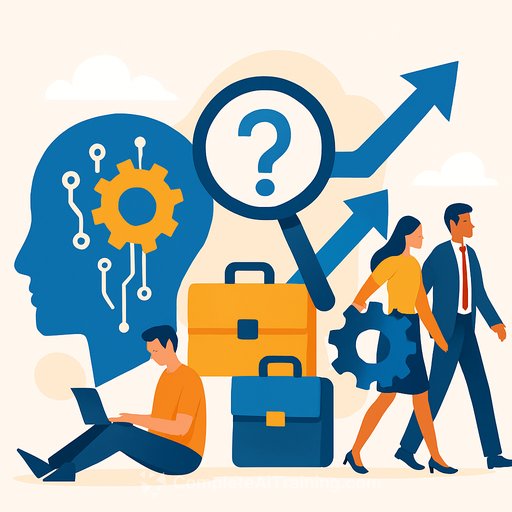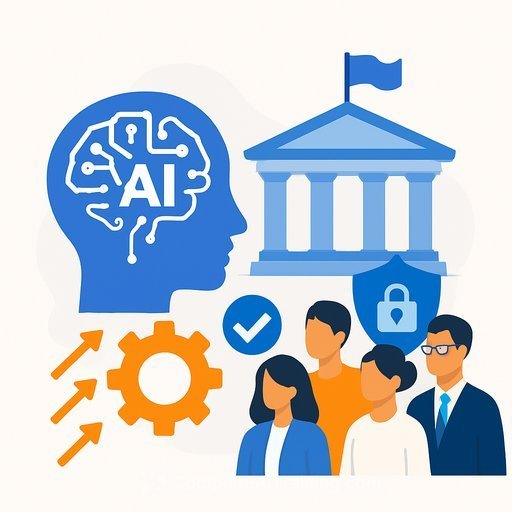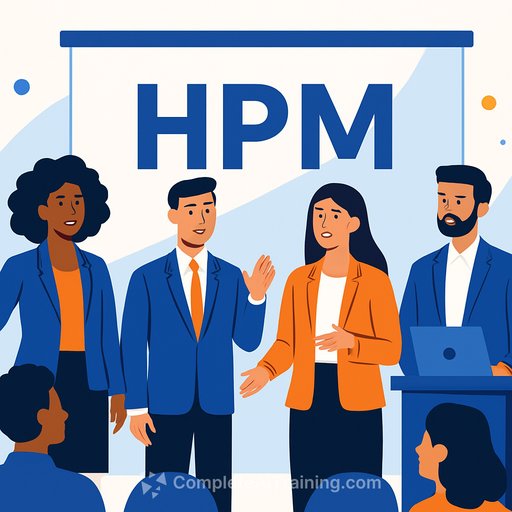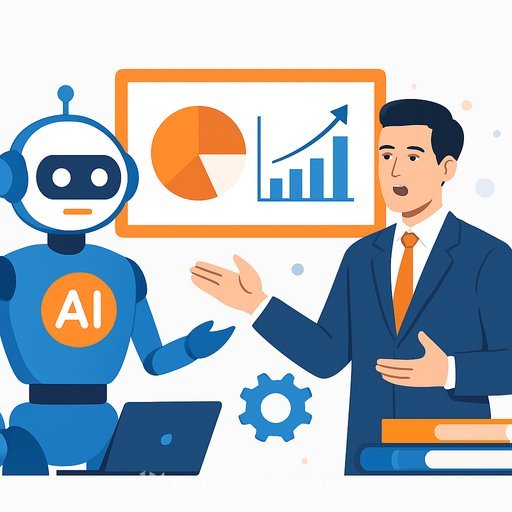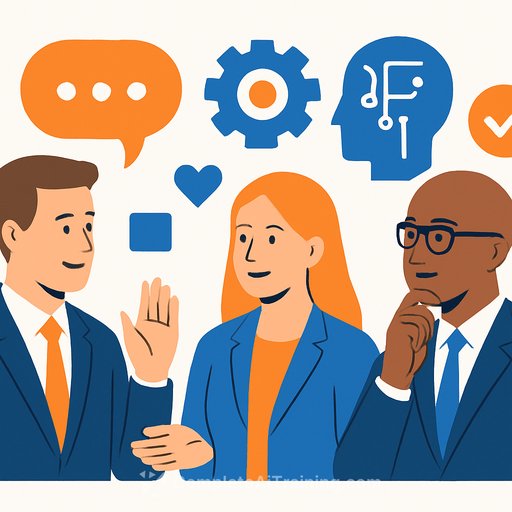AI in HR: The Future of Work in the Age of AI
Artificial Intelligence is changing the job market. While millions of jobs face risk, new roles are also appearing. The focus is shifting from AI replacing humans to AI augmenting human work. Agentic AI, capable of autonomous decision-making, challenges even complex professions. The future depends heavily on policies, institutions, education, and ethical choices. Countries like Denmark and Singapore provide valuable models to learn from.
Key Points
- AI reshapes jobs but also creates new opportunities.
- Agentic AI threatens complex job functions beyond routine work.
- Success in future work depends on skills, adaptability, and collaboration with AI.
This article is part seven in a nine-part series exploring the rise of AI and its impact on jobs, ethics, society, and purpose. It offers insights into how AI changes job roles, what skills will matter, and how to address ethical and psychological workplace shifts. It also challenges us to rethink education, inclusion, and purpose in the workplace.
“AI won’t take your job. A person using AI will.”
A Walk into the Future
Tom attends a national forum in Delhi where workers from various sectors discuss the future of work. Their conversations reveal a mix of fear, hope, and uncertainty. Work goes beyond earning a living—it touches dignity, identity, and belonging. Changing work means reshaping society itself.
Jobs at Risk: Roles Likely to Disappear
AI and automation are already reshaping labor markets. Millions of jobs involving routine, repetitive tasks face high risk, including:
- Data entry clerks
- Telemarketers and call center agents
- Retail cashiers
- Basic customer support representatives
- Proofreaders and translators (for common languages)
- Paralegals and legal assistants
- Accounting clerks and bookkeepers
- Insurance underwriters
- Fast-food service workers
Machines outperform humans in speed, cost, and accuracy for repetitive tasks. For example, at a call center Tom visits, half the desks are now replaced by chatbots. Human workers have shifted to training AI systems, a role that can feel like babysitting algorithms rather than solving problems. This shift impacts both jobs and personal identity.
Jobs That Will Be Augmented
Not all jobs will vanish. Many will evolve as AI becomes a co-pilot, boosting productivity while leaving human judgment, creativity, and empathy intact. Examples include:
- Doctors: Using AI to analyze medical images and symptoms for faster diagnosis.
- Teachers: Creating personalized learning experiences with adaptive platforms.
- Writers & Journalists: Collaborating with generative AI while maintaining editorial control.
- Software Engineers: Using AI-assisted coding tools like GitHub Copilot.
- Architects & Designers: Combining human creativity with generative design algorithms.
- HR Managers: Applying predictive analytics for hiring decisions while ensuring fairness.
The meaning of “skill” is shifting. Success will favor those who adapt quickly and work effectively alongside AI.
Jobs That Will Be Created
Each technological shift brings new jobs. The World Economic Forum estimates that while 85 million jobs may be displaced by 2030, 97 million new roles will emerge. New job categories include:
- AI Trainers and Prompt Engineers
- Ethical AI Auditors
- Human-AI Experience Designers
- AI Safety Researchers
- Climate Analysts skilled in AI
- Neurodiverse Accessibility Designers
- Community Technologists adapting AI for local needs
Skills will outweigh formal credentials. Lifelong learning, bootcamps, and peer networks will be crucial. Proposals like a national skills passport emphasize practical experience alongside traditional degrees.
The Agentic AI Disruption: Beyond Routine Work
Agentic AI systems go beyond responding to commands. They autonomously plan, act, and adapt to goals. This includes:
- Scheduling meetings, negotiating contracts, managing workflows
- Running hiring processes from shortlisting to initial interviews
- Operating complex supply chains dynamically
- Managing digital marketing campaigns end-to-end
This expansion puts middle managers, analysts, junior consultants, and HR staff at risk. For example, Agentic AI can scan resumes, conduct preliminary interviews, and draft evaluation reports, reducing the need for human involvement in early hiring stages. In consulting and law, AI can automate market analyses and case preparation. The challenge is not just job loss but disruption of career ladders and training pathways.
The Three Camps: Perspectives on the Future of Work
- Doomsayers: Fear mass unemployment, growing inequality, and loss of meaning. Support universal basic income and stricter AI regulation.
- Optimists: See AI as a chance to eliminate tedious tasks and create new jobs. Advocate entrepreneurship and education reform.
- Realists: Acknowledge disruption but stress that outcomes depend on policies and institutions. Push for retraining subsidies and digital equity.
Tom aligns with the realist view: “It’s not technology that decides outcomes—it’s the social contract we build around it.”
Data Snapshot
- 400 million jobs could be displaced by AI by 2030 (McKinsey)
- 66% of businesses plan to adopt AI by 2027 (World Economic Forum, 2023)
- 70% of workers fear redundancy; only 34% of firms offer retraining (MIT Sloan)
- Women and minority workers are more likely to hold automatable roles (International Labour Organization, 2022)
Agentic AI may accelerate these trends by automating higher-level tasks.
Policy Pathways: Learning from Global Examples
Effective policies can ease AI’s impact. Examples include:
- Denmark’s Flexicurity Model: Combines labor flexibility with strong social safety nets, allowing workers to retrain without fear.
- Singapore’s SkillsFuture Programme: Provides lifelong learning credits for continuous reskilling.
- Germany’s Apprenticeship System: Connects education with evolving industry needs.
It’s critical not to overlook the Global South, where AI-driven jobs in agriculture, microfinance, and telemedicine could transform lives if supported by inclusive digital infrastructure.
A Day in Transition
At a rural retraining center, truck drivers replaced by autonomous vehicles learn drone operations for agriculture. While some embrace the change, others struggle with starting over. These stories show that transitions are uneven and require support beyond technical training.
Why This Matters
This discussion goes beyond jobs to touch on identity, dignity, and belonging. The future of work must consider policies, ethics, and responsibility to future generations. The key questions are:
- What will AI do to work?
- What will we do with AI?
Actions needed include:
- Investing in inclusive education and lifelong learning
- Expanding mental health and social support during transitions
- Funding community-driven innovation
- Including youth voices in policymaking
- Preparing for Agentic AI’s effects on complex roles and career paths
Closing Reflection
Different viewpoints—from lived experience to research and policy—agree on one fact: The future of work is not set in stone. It is shaped by our choices. Collaboration across generations is vital to build a fair AI future. We face a crossroads: automation or augmentation, exclusion or empowerment, despair or dignity. The machines won’t decide for us. We will.
Coming Up Next – Chapter 8: The Human Purpose and the Ethics of Progress
If AI changes how we work, what does it mean to be human?
Your membership also unlocks:

